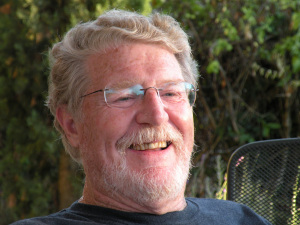Power presents no evidence for this statement because none exists. Regardless of what one thinks of Moscow's role in Ukraine, the vast majority of Russians are not only aware of it, but overwhelmingly support President Vladimir Putin on the issue. From the average Russian's point of view, NATO has been steadily marching eastwards since the end of the Yugoslav war. It is Americans who are deployed in the Baltic and Poland, not Russians gathering on the borders of Canada and Mexico. Russians are a tad sensitive about their borders, given the tens of millions they lost in World War II, something that Power seems oblivious of.
What Power seems incapable of doing is seeing how countries like China and Russia view the U.S. That point of view is an essential skill in international diplomacy, because it is how one determines whether or not an opponent poses a serious threat to one's national security.
Is Russia -- as President Obama recently told the UN -- really "attempting to recover lost glory through force," or is Moscow reacting to what it perceives as a threat to its own national security? Russia did not intervene in Ukraine until the U.S. and its NATO allies supported the coup against the President Viktor Yanukovych government and ditched an agreement that had been hammered out among the European Union, Moscow, and the U.S. to peacefully resolve the crisis.
Power argues that there was no coup, but U.S. Assistant Secretary of State Victoria Nuland and the U.S. Ambassador to the Ukraine, Geoffrey Pyatt were caught on tape talking about how to "mid-wife" the takeover and choosing the person they wanted to put in place.
As for "lopping off" Crimea, Power had no problem with the U.S. and NATO "lopping off" Kosovo from Serbia in the Yugoslav War. In both cases local populations -- in Crimea by 96 percent -- supported the takeovers.
Understanding how other countries see the world does not mean one need agree with them, but there is nothing in Moscow's actions that suggests it is trying to re-establish an "empire," as Obama characterized its behavior in his recent speech to the UN. When Hillary Clinton compared Putin to Hitler, she equated Russia with Nazi Germany, which certainly posed an existential threat to our national security. But does anyone think that comparison is valid? In 1939, Germany was the most powerful country in Europe with a massive military. Russia has the 11th largest economy in the world, trailing even France, Germany, the United Kingdom, Italy and Brazil. Turkey has a larger army.
Power's view of what is good for the Russian people is a case in point. While one can hardly admire the oligarchy that dominates Russia -- and the last election would seem to indicate considerable voter apathy in the country's urban centers -- the "liberals" Power is so enamored with were the people who instituted that so-called economic "shock therap y" in the 1990s that impoverished tens of millions of people and brought about a calamitous drop in life expectancy. That track record is unlikely to get one elected. In any case, Americans are hardly in a position these days to lecture people about the role oligarchic wealth plays in manipulating elections.
The Chinese are intolerant of internal dissent, but the Washington's argument with Beijing is over sea-lanes, not voter rolls.
(Note: You can view every article as one long page if you sign up as an Advocate Member, or higher).





